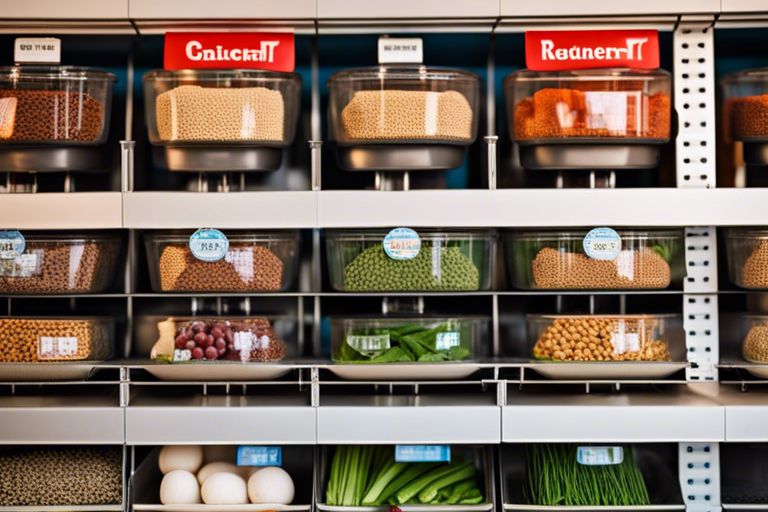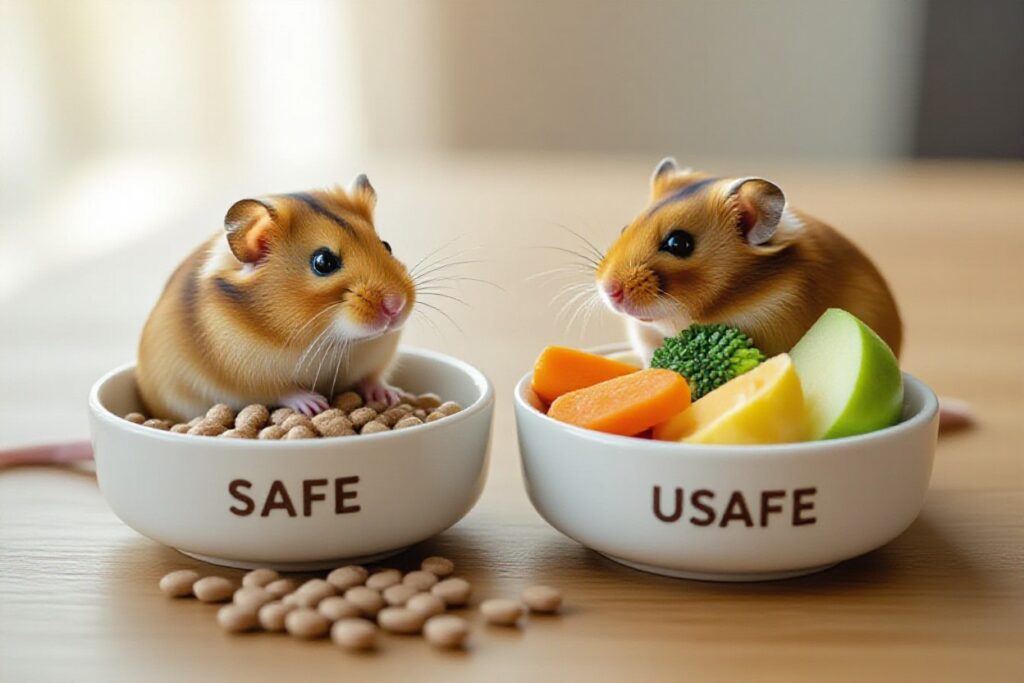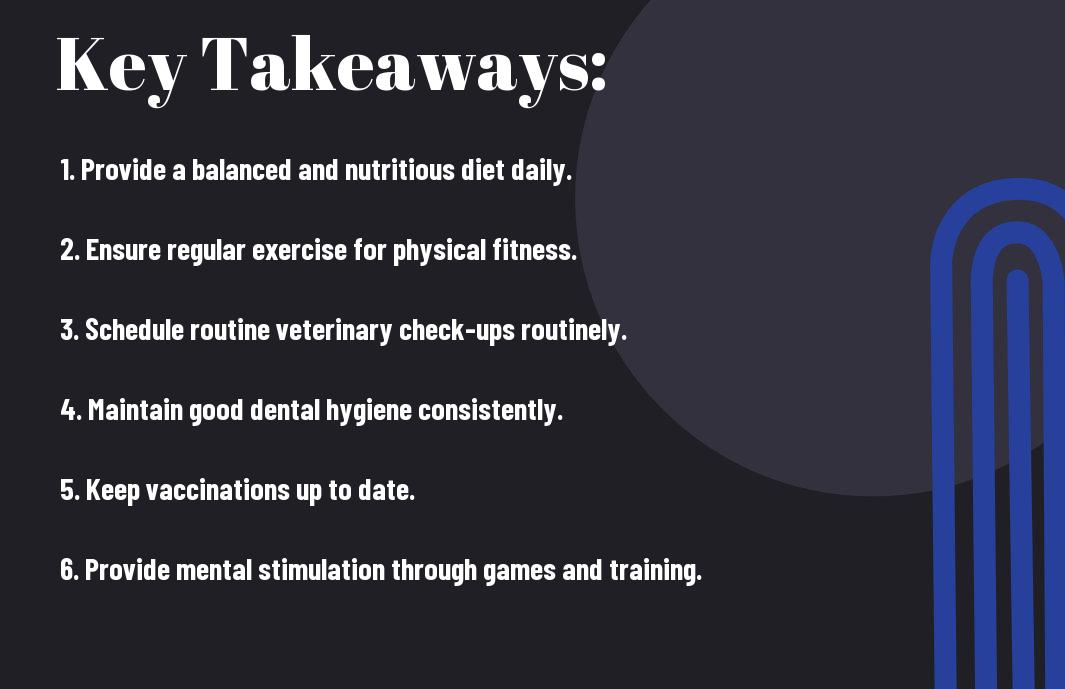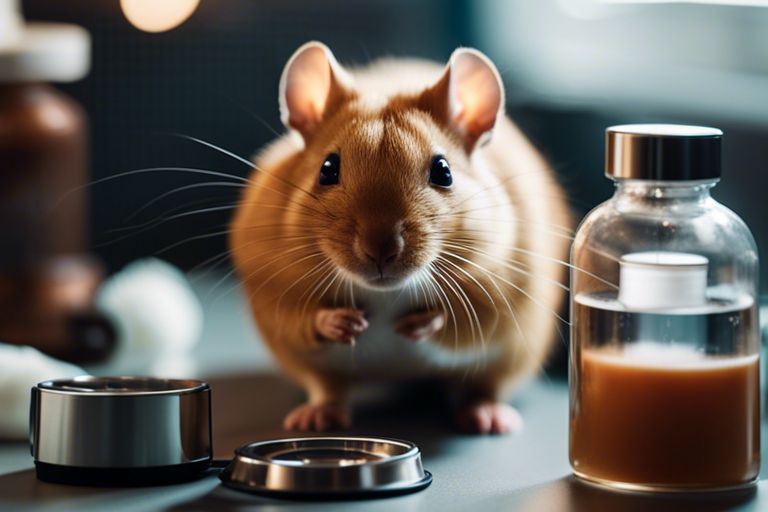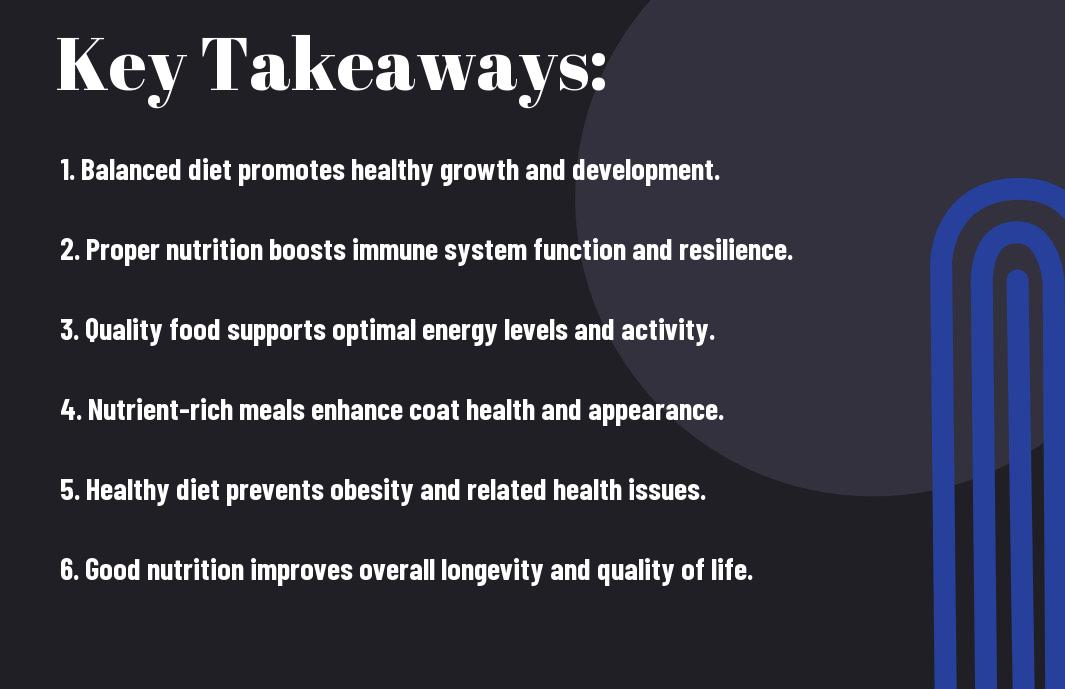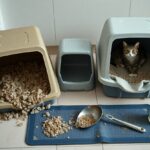You want to ensure your pet rodent is getting the best nutrition possible to keep them healthy and thriving. Understanding what to feed your furry friend is crucial in providing them with a well-balanced diet. This complete guide will walk you through the fundamentals of rodent nutrition, including what foods are safe and beneficial for your pet.
Understanding Rodent Nutrition
Basic Nutritional Needs of Rodents
For optimal health and well-being, rodents require a well-balanced diet that meets their specific nutritional needs. The basic nutritional requirements of rodents include proteins, carbohydrates, fats, vitamins, minerals, and water. These vital nutrients are crucial for supporting various bodily functions, growth, and energy levels in rodents.
Rodents are omnivores by nature, meaning they require a combination of plant-based and animal-based foods to thrive. It is vital to provide a diverse diet that includes a mix of fresh vegetables, grains, seeds, and occasional lean protein sources to ensure they receive all the necessary nutrients for their overall health.
The Role of Diet in Rodent Health
There’s no denying that diet plays a significant role in the health and well-being of rodents. A balanced and nutritious diet can help prevent various health issues such as obesity, dental problems, and nutritional deficiencies. It is crucial to provide fresh and high-quality food to rodents to support their immune system, digestion, and overall vitality.
Nutritional
Regularly monitoring your rodent’s diet and making any necessary adjustments can help maintain their optimal health and prevent potential health issues. Consulting with a veterinarian or a rodent nutrition specialist can provide valuable guidance on creating a suitable diet plan tailored to your rodent’s specific needs and preferences.
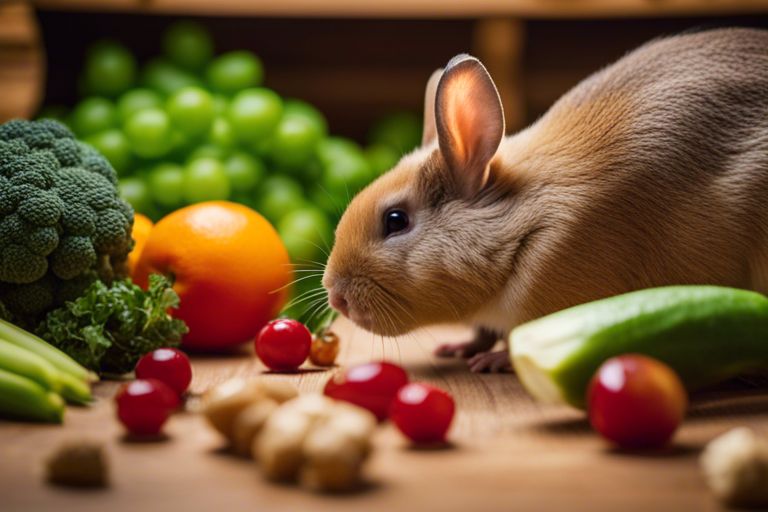
Types of Rodent Diets
Assuming you are a responsible pet owner who wants to ensure the well-being of your furry friend, understanding the various types of rodent diets is necessary. Different diets can cater to the specific nutritional needs of different rodent species, so it’s crucial to choose the right one for your pet.
| Commercial Diets | Fresh Foods and Treats |
| Homemade Diets | Supplements |
| Seed Mixes | Hay and Grasses |
| Vegetables and Fruits | Protein Sources |
| Pellets | Fats and Oils |
Commercial Diets: Pros and Cons
Cons
When considering commercial diets for your rodent, it’s important to weigh the pros and cons. While these diets are convenient and often nutritionally balanced, they may contain fillers and preservatives that are not ideal for your pet’s health. Additionally, some commercial diets may lack variety, leading to nutritional deficiencies over time.
Pros
On the other hand, commercial diets can be a convenient option for busy pet owners, as they provide a balanced mix of nutrients in one package. They are also formulated to meet the specific dietary requirements of different rodent species, ensuring that your pet receives the necessary vitamins and minerals it needs to thrive.
Fresh Foods and Treats: Pros and Cons
Assuming
When incorporating fresh foods and treats into your rodent’s diet, it’s necessary to consider the pros and cons. While fresh foods can provide necessary nutrients and variety to your pet’s diet, they may also carry a risk of contamination if not stored or handled properly. Additionally, some treats may be high in sugar or fat, leading to obesity or other health issues.
Pros
Fresh foods and treats can offer a variety of textures and flavors to your pet, making mealtime more enjoyable. They also mimic a rodent’s natural diet in the wild, providing enrichment and mental stimulation. By including fresh foods and treats in your pet’s diet, you can promote a diverse and balanced nutritional intake.
This information should serve as a comprehensive guide to help you make informed decisions when it comes to feeding your pet rodent. By understanding the different types of diets available and their pros and cons, you can provide your furry friend with a well-rounded and nutritious diet that supports their overall health and well-being.
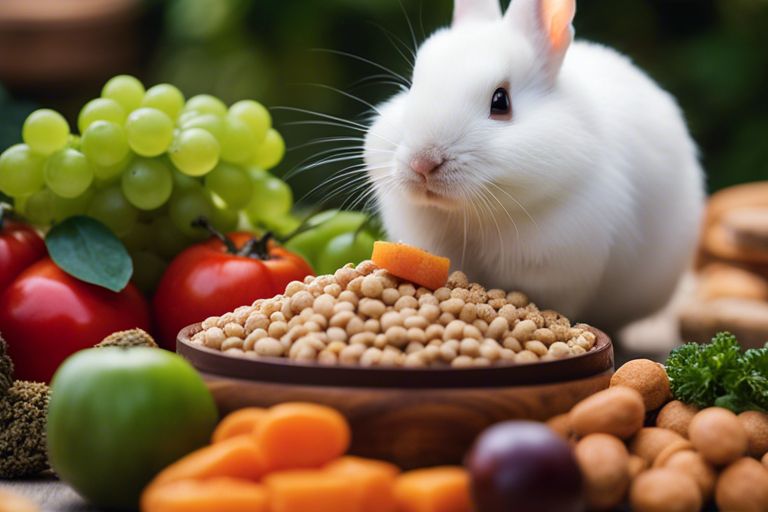
Creating a Balanced Diet
Many rodent owners may wonder how to provide a balanced diet for their pet. Developing a proper feeding plan is imperative to ensure that your rodent receives all the necessary nutrients for optimal health and well-being.
Step-by-Step Guide to Meal Planning
Clearly outlining a meal plan for your rodent can help you ensure that they receive the right balance of nutrients. Here is a simple table to guide you in planning your pet’s meals:
| Food Group | Examples |
| Grains | Oats, barley, wheat |
| Fruits and Vegetables | Apples, carrots, leafy greens |
| Protein | Nuts, seeds, insects |
| Calcium | Broccoli, kale, cheese |
Calculating Nutritional Requirements
Little calculation is needed to determine the specific nutritional requirements for your rodent. Factors such as species, age, weight, and activity level all play a role in determining the ideal diet for your pet.
Planning a balanced diet for your rodent involves considering their unique nutritional requirements. Consulting with a veterinarian or a rodent nutrition specialist can also provide valuable insights into developing a customized feeding plan for your furry friend.
Feeding Tips for Specific Rodent Species
Once again, it is crucial to understand the unique dietary needs of different rodent species to ensure they receive the proper nutrition for their health and well-being. Here are some feeding tips specific to different types of rodents:
Special Considerations for Hamsters
Feeding hamsters can be a bit tricky as they are omnivores, meaning they require a mix of proteins, carbohydrates, and fats in their diet. It is important to provide a balanced diet that includes commercial hamster pellets, fresh vegetables, fruits, and occasional treats like mealworms or nuts. Avoid feeding them citrus fruits, onions, garlic, or any toxic foods that could harm them. Additionally, make sure to provide fresh water at all times in a sipper bottle to prevent contamination.
Assume that hamsters have different dietary needs based on their species, age, and activity level. It’s important to monitor their food intake and adjust their diet accordingly to ensure they are getting the right nutrients.
Dietary Needs of Rats and Mice
Assuming rats and mice have a primarily herbivorous diet, they require a mix of high-quality commercial rodent pellets, fresh vegetables, fruits, and grains. It is crucial to provide a variety of foods to meet their nutritional needs and prevent boredom. Avoid feeding them sugary foods, processed foods, or anything high in fat that could lead to obesity and health issues.
It is important to offer fresh water at all times and ensure they have access to chew toys to help wear down their continuously growing teeth. Rats and mice are prone to nutritional deficiencies, so it’s important to consult with a veterinarian to create a balanced diet plan for them.
Nutrition for Guinea Pigs and Other Exotic Rodents
Needs Guinea pigs and other exotic rodents have specific dietary requirements that differ from other rodents. They are strict herbivores and need a diet rich in hay, fresh vegetables, fruits, and fortified guinea pig pellets. Vitamin C is crucial for guinea pigs, so make sure to provide them with foods high in this vitamin like bell peppers, kale, or oranges.
Hamsters, It is important to avoid giving them foods high in calcium, such as spinach or kale, as it can lead to urinary issues. Provide them with a constant supply of hay and fresh water, and regularly clean their food and water containers to prevent contamination.
Factors Influencing Diet and Nutrition
All rodent owners must consider several factors when determining the diet and nutritional needs of their pets. These factors can include the species of rodent, their age, activity level, health status, and reproductive status. It is necessary to provide a balanced diet that meets all of these needs to ensure the overall health and well-being of your pet rodent. Recognizing these factors can help you make informed decisions about the diet and nutrition of your furry friend.
Life Stages and Dietary Adjustments
Assuming that rodent species have specific dietary requirements, it is crucial to consider the life stage of your pet when determining their nutritional needs. Different life stages, such as infancy, adulthood, and old age, require adjustments in diet to support growth, maintenance, or aging. Providing appropriate levels of necessary nutrients like protein, fat, vitamins, and minerals at each life stage is key to promoting optimal health and longevity in your rodent companion.
Weight Management and Obesity Prevention
Juvenile rodents are particularly vulnerable to obesity, which can have serious health consequences. Management of their weight through proper diet and exercise is necessary to prevent obesity and related health issues. Providing a balanced diet with appropriate portions, as well as engaging your pet in regular physical activity, can help maintain a healthy weight and overall well-being in your juvenile rodent. Remember to consult with a veterinarian for specific guidance on weight management and obesity prevention strategies tailored to your pet’s individual needs.
The Pros and Cons of DIY Rodent Food
After deciding to make your own rodent food, it’s vital to weigh the pros and cons to ensure you’re providing your pet with a balanced diet. Below is a breakdown of the advantages and disadvantages of DIY rodent food:
| Pros | Cons |
| Control over ingredients | Time-consuming |
| Cost-effective | Difficulty in achieving proper nutrient balance |
| Fresh and customizable | Risk of inadequate nutrition |
| Avoidance of preservatives and additives | Requires knowledge of rodent dietary needs |
Steps to Making Your Own Rodent Food
On the journey to preparing homemade rodent food, the first step is to research and understand the specific nutritional requirements of your pet. Once you have gathered the necessary information, you can start selecting appropriate ingredients based on your rodent’s needs and preferences.
After choosing the ingredients, the next step is to create a well-balanced recipe that includes a mix of grains, seeds, vegetables, and protein sources. Carefully measure and combine the ingredients to ensure your rodent receives all the vital nutrients for optimal health.
Evaluating the Nutritional Adequacy of Homemade Diets
You must evaluate the nutritional adequacy of your homemade rodent food to guarantee it meets all the dietary requirements. Checking the proportions of macronutrients such as carbohydrates, fats, and proteins is crucial to prevent deficiencies or excesses that could harm your pet’s health. It is recommended to consult with a veterinarian or a rodent nutrition expert to verify the balance of the diet you have created.
You should also consider supplementing your rodent’s diet with vitamins and minerals if there are any gaps in their nutritional intake. A balanced diet is vital to ensure your pet’s overall well-being and longevity.
Another important aspect to consider when evaluating the nutritional adequacy of homemade diets is the bioavailability of nutrients. Not all ingredients provide nutrients that are easily absorbed by rodents, so it’s vital to include a variety of sources to ensure proper digestion and utilization by your pet.
Common Feeding Mistakes to Avoid
Overfeeding and Nutritional Imbalances
An important part of caring for your pet rodent is to ensure they have a balanced and healthy diet. Overfeeding can lead to obesity and various health issues. It’s crucial to follow recommended feeding guidelines for your specific rodent species and to monitor their weight regularly. Nutritional imbalances can also occur if your pet is not receiving the proper mix of nutrients. Make sure to provide a diverse diet and consult with a veterinarian or rodent nutritionist if you have any concerns about your pet’s nutrition.
Hazardous Foods and Toxic Substances
Avoid feeding your pet rodent foods that are toxic or hazardous to their health. Some common foods that can be dangerous include chocolate, caffeine, garlic, onions, and high-fat or sugary treats. Additionally, certain household items like cleaning products, pesticides, and certain plants can be toxic to rodents if ingested. It’s important to be aware of these dangers and keep them out of reach of your pet at all times.
Common hazardous foods and toxic substances can pose serious risks to your rodent’s health and should never be included in their diet. Always research any new foods or items before giving them to your pet, and err on the side of caution when in doubt. Your rodent’s well-being should always be the top priority when it comes to feeding decisions.
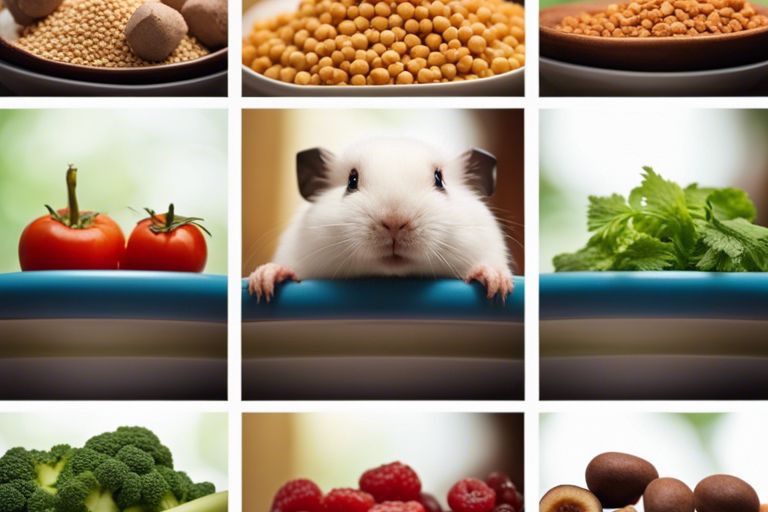
Additional Resources
Recommended Reading and Websites
Unlike many other common household pets, rodents have unique dietary requirements that can greatly impact their health and wellbeing. Any responsible rodent owner should be well-informed about the best practices for feeding their furry friends. To supplement the information provided in this guide, there are various recommended reading materials and websites that you can explore to enhance your knowledge in rodent nutrition.
Consultation with Veterinary Nutritionists
Clearly, when it comes to ensuring the optimal health and nutrition of your pet rodent, consulting with veterinary nutritionists can be extremely beneficial. These professionals have the expertise to provide tailored advice and recommendations based on your rodent’s specific needs. Whether you have a question about a particular diet, portion sizes, or dietary supplements, veterinary nutritionists can offer valuable guidance to support the overall well-being of your furry companion.
Understanding the intricacies of rodent nutrition can be complex, and veterinary nutritionists can help simplify the process by providing evidence-based recommendations that are backed by scientific research. By seeking the expertise of these professionals, you can feel confident that you are making informed decisions regarding your rodent’s diet and nutritional requirements.
Conclusion
As a reminder, proper nutrition is imperative for the health and well-being of your pet rodent. By following the guidelines outlined in this complete guide to feeding your pet, you can ensure that your rodent receives a balanced diet that meets their specific dietary needs. Remember to provide a variety of fresh fruits, vegetables, high-quality pellets, and occasional treats to keep your rodent happy and healthy.
It is also important to monitor your rodent’s weight and adjust their diet as needed to prevent obesity or other health issues. By putting in the effort to provide your pet rodent with the best nutrition possible, you are investing in their long-term health and overall quality of life. If you have any concerns about your rodent’s diet or nutritional needs, consult with a veterinarian or a qualified animal nutritionist for further guidance.
FAQ
Q: Why is proper nutrition important for pet rodents?
A: Proper nutrition is vital for pet rodents as it helps maintain their health, immunity, and overall well-being. A balanced diet ensures they receive all the necessary nutrients to thrive and prevent common health issues.
Q: What should be included in a well-balanced diet for pet rodents?
A: A well-balanced diet for pet rodents should consist of high-quality commercial rodent pellets as the primary source of nutrition. Additionally, fresh vegetables, fruits, and occasional treats such as nuts or seeds can be offered in moderation.
Q: Can pet rodents eat the same food every day?
A: It is important to provide variety in a pet rodent’s diet to ensure they receive a wide range of nutrients. Rotating different types of vegetables, fruits, and treats can prevent nutrient deficiencies and help keep mealtime interesting for your pet.
Q: Are there any foods that are toxic to pet rodents?
A: Yes, some foods can be toxic to pet rodents and should be avoided. These include chocolate, caffeine, onions, garlic, and raw beans. It is important to research foods before offering them to your pet to ensure they are safe and healthy.
Q: How can I assess if my pet rodent is receiving proper nutrition?
A: You can assess your pet rodent’s nutrition by observing their overall health, energy levels, and weight. A healthy rodent will have a shiny coat, bright eyes, and be active and playful. Consulting with a veterinarian can also help ensure your pet is receiving proper nutrition.
